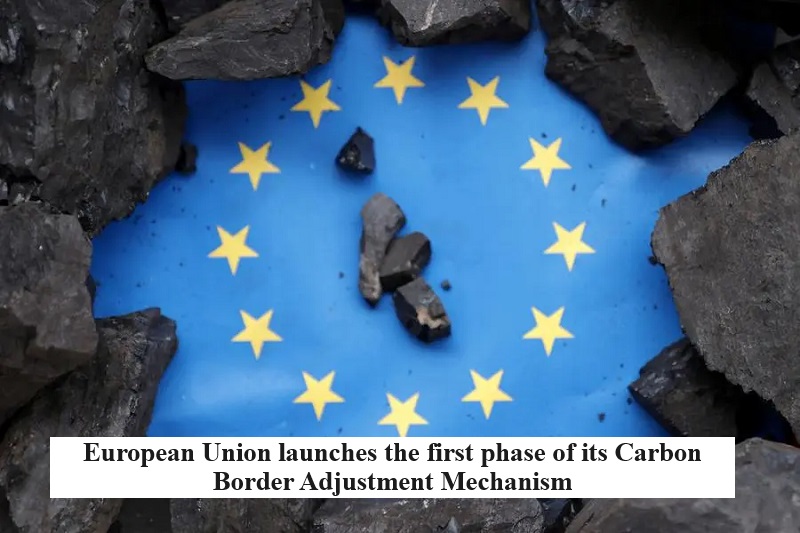
The European Union (EU) has initiated the first stage of its Carbon Border Adjustment Mechanism (CBAM), which is a system designed to impose carbon dioxide (CO2) emissions tariffs on a range of imported goods, including items like steel and cement. This measure, as reported by Reuters, has been introduced to safeguard the EU’s commitment to environmental sustainability by preventing the influx of environmentally damaging foreign products that could undermine its green transition. This proposal has raised concerns among trade partners, with China’s leading climate representative, Xie Zhenhua, advising against unilateral actions like the EU’s imposition of tariffs during a recent forum.
The initial phase of CBAM, though the actual collection of CO2 emission charges at EU borders won’t commence until 2026, officially began on October 1st. In support of this, the EU has established a new CBAM transitional registry, effective from the same date, aimed at assisting EU importers and non-EU installations in implementing the new regulations by facilitating the calculation and reporting of associated greenhouse gas emissions.
During this initial phase, EU importers will be obligated to report the greenhouse gas emissions linked to the production of imported commodities, encompassing materials like iron and steel, aluminum, cement, electricity, fertilizers, and hydrogen. From 2026 onwards, importers will be required to acquire certificates to offset these CO2 emissions. This move is intended to create a level playing field between importers and EU industries, the latter of which are already obliged to obtain permits through the EU carbon market to mitigate their pollution.
The EU has expressed that this approach will equalize the price of carbon between domestically produced goods and imports. This step aims to ensure that the EU’s climate policies remain effective and are not undermined by production shifting to countries with less stringent environmental standards or by the substitution of EU products with more carbon-intensive imports, as explained in an EU statement.
According to the EU, CBAM is a measure that complies with World Trade Organization (WTO) regulations and is expected to encourage global industries to adopt greener and more sustainable technologies. Additionally, the EU has indicated that reviews of CBAM’s performance and product scope will be completed during its transitional phase, preceding the definitive implementation period. Furthermore, the feasibility of expanding the scope of CBAM to cover other goods produced in sectors regulated by the EU Emissions Trading System (ETS) will also be assessed.

Post Your Comments